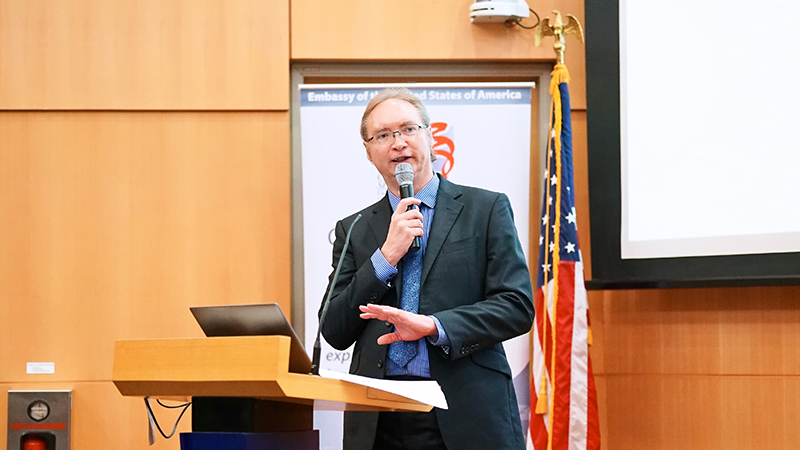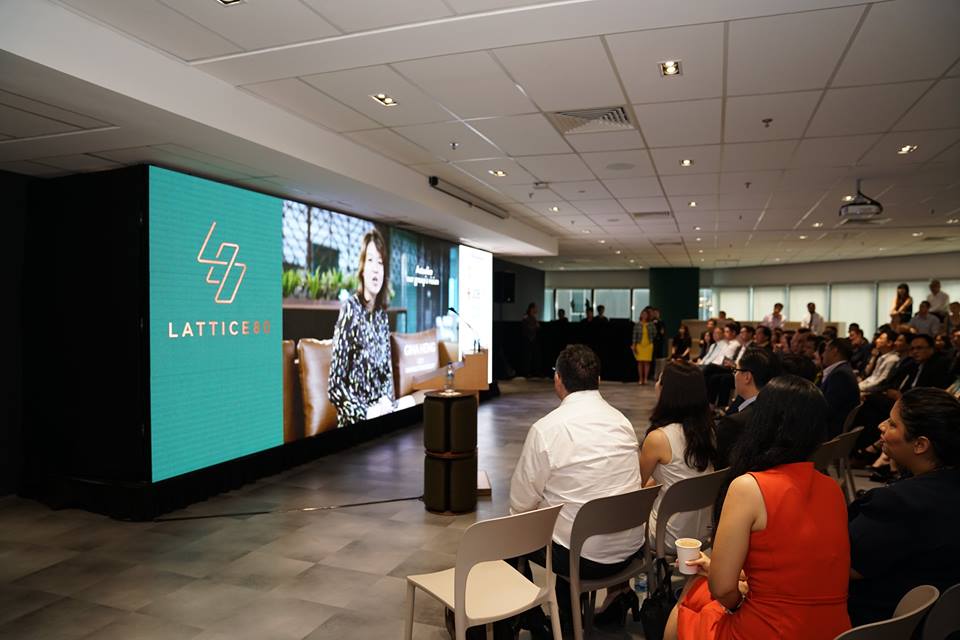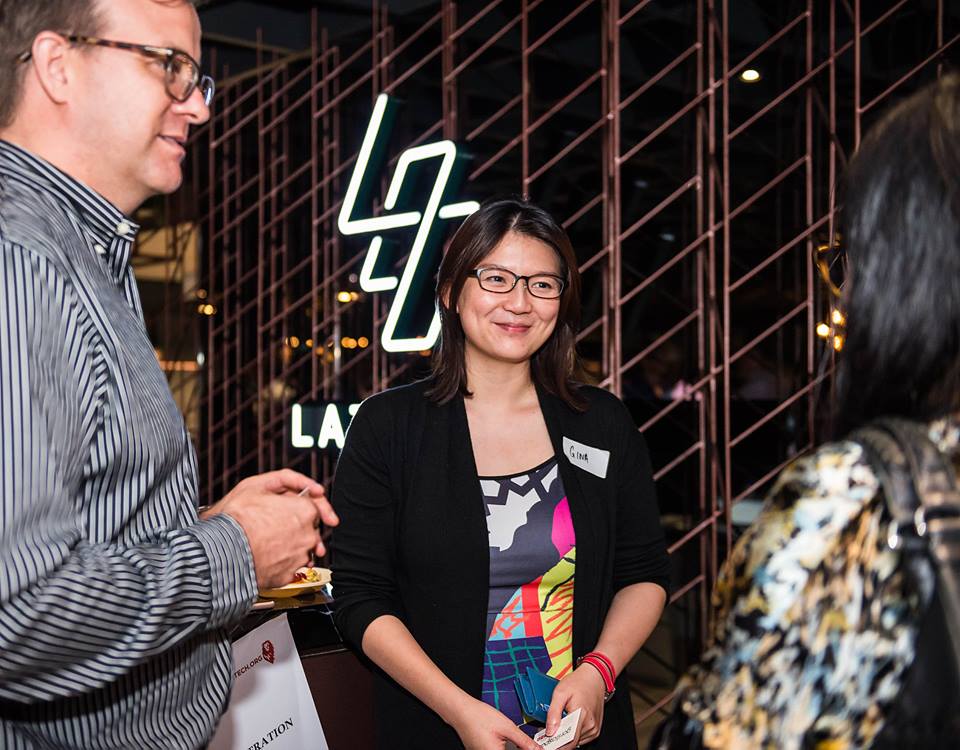By the SMU Social Media Team
Singapore is positioning itself as a global fintech hub, and over the past few years has become an increasingly attractive destination for the world’s top innovators.
Deloitte pegs Singapore alongside London as the global hubs most conducive to the growth of Fintech. And the city-state was ranked fourth among global fintech hubs in this Ernst & Young study – behind the UK, California and New York and noted as “the preferred gateway into Asia” over the likes of Hong Kong.

SMU Associate Professor Paul Griffin
“Singapore is a focal point for entrepreneurs in Southeast Asia, with more coming in from the US and Europe to expand their start-ups,” says Paul Griffin, SMU Associate Professor of Information Systems and Assistant Director of the Master of Information Technology in Business (MITB) Financial Technology (FinTech) programme. “Globally it is often quoted as being in the top 5 due to the government support, innovation culture and engaged regulators.”
Indeed, in line with the government’s Smart Nation vision; the Monetary Authority of Singapore (MAS), the nation’s financial regulator, has made significant strides towards turning Singapore into a Smart Financial Centre, embracing the widespread use of innovation and technology.
Initiatives like the MAS ‘sandbox framework’ enable financial institutions and other fintech players to collaborate on innovation with a safety net in place to spread risk and limit losses. MAS has also committed to spending S$225 million over the next five years to attract more financial institutions to set up their innovation labs in Singapore.
And anyone with any remaining doubt over Singapore’s global clout need only look to the recent FinTech Festival held here recently which attracted more than 10,000 members of the global fintech community – including many of the key multinational financial services players – from 50 countries around the world.
When it comes to fintech, Singapore means business. And that’s why Asian private investment group Marvelstone Group chose Singapore as the location for its 30,000 square foot fintech start-up incubator, LATTICE80.
“Singapore has a highly progressive approach and strong support to innovation from both public and private sector,” says LATTICE80 co-founder Gina Heng, “It allows start-ups to test financial products in a controlled environment. In addition, the city is an established international finance hub. The regulators understand the need for fintech and building of the ecosystem and regulations and policies are shifting to encourage fintech. Finally, it is close to the other Asian countries that have a huge unbanked population that can be accessed better when companies are based in or move base to Singapore.”
Spread across two open-plan floors in Robinson Road, LATTICE80 is designed to create a collaborative and creative ecosystem where start-ups can tap into networks and resources as a springboard to local, and more importantly, global success. And it hasn’t taken long for the fintech community to take notice, Gina Heng says that following their launch late last year, LATTICE80 is already at full capacity – with a mix of local and international companies, “which range from roboadvisors and asset managers, data analytics, trading platforms, blockchain solutions, financial education, venture capital firms, fintech accelerators and corporate innovation labs.”
She sees an important role for LATTICE80 in Singapore’s evolution as a global fintech hub, “We see ourselves as an ecosystem enabler – enabling start-ups to grow their business – and an enabling environment boosts the talent that is present in Singapore.”
Homegrown fintech talent is a key issue and potential stumbling block which could threaten Singapore’s efforts to keep pace with other innovation hubs around the world. Professor Griffin says, “While the foundations are in place for fintech in Singapore, I see the main drag from the lack of technically skilled people available to work in fintech. I don’t just mean programmers but people who understand the breadth of technology and how it is applied in a business context.”
Ravi Menon, managing director of MAS, said in a recent interview with the Straits Times, “We want to maximise the number of Singaporeans able to take the good jobs that are going to be created. That means intervening upstream, working with polytechnics and universities to make sure we have a strong talent pipeline.”
So, there’s a role for academic institutions alongside private sector start-up incubators like LATTICE80, in securing the success of Singapore’s innovation ecosystem. Professor Griffin says, “robust industry links give students first-hand exposure to the fintech sector through internships and networking, which enable them to develop a deeper understanding of the industry, through the context of business itself.”
And, Professor Griffin says, whilst an entrepreneur may not need a certificate to succeed with their business venture, the depth and breadth of knowledge to be gained through continued study can yield unique insights into how to exploit opportunities in the fintech sector. “The study of how finance and technology fit together in a real-world setting, for example, combined with leadership management and communication skills which are all vital in creating a successful start-up venture, enables students to position themselves to make a real impact in this sector.”
So aspiring fintech entrepreneurs with a great idea, the right approach and the right qualifications, will find the Singapore innovation ecosystem welcoming.
Gina Heng’s advice is, “Aim to be global from the start. Aim to fill the gaps that banks or other industries cannot address at this time, but also learn to work in collaboration with them.”
And to shine in a competitive and increasingly popular space, Professor Griffin says, “Do your homework. Get a solid business plan right at the start, be honest with the strengths and weaknesses of the idea and have an action plan with meaningful milestones. You need to be able to articulate what makes you a rock star rather than just a good player.”
You can find out more information on the SMU Master of Information Technology in Business (MITB) here.











